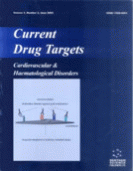Abstract
Atherosclerosis and its complications still represent the major cause of death in developed countries. Statins have revolutionized the treatment of dyslipidemia and demonstrated their ability to reduce and prevent coronary morbidity and mortality. Statins inhibit 3-hydroxyl-3-methylglutaryl coenzyme A (HMG-CoA) reductase, an enzyme crucial to cholesterol synthesis. The effectiveness and rapidity of statin-induced decreases in coronary events led to the speculation that statins possess cholesterol-independent effects. Since mevalonate produced by the HMG-CoA reductase is not only the precursor of cholesterol, but also of non steroidal isoprenoid compounds, such as the farnesyl pyrophosphate and the geranylgeranyl pyrophosphate, statins also regulate the small signaling proteins, Ras and Rho. Thus, inhibition of these prenylated proteins might account for the non-lipid lowering effects of statins. In this review, we describe the numerous beneficial pleiotropic effects of statins that could modulate atherogenesis.
Keywords: atherosclerosis, hmg-coa reductase inhibitors, statins, cholesterol, pleiotropic effects
 3
3













